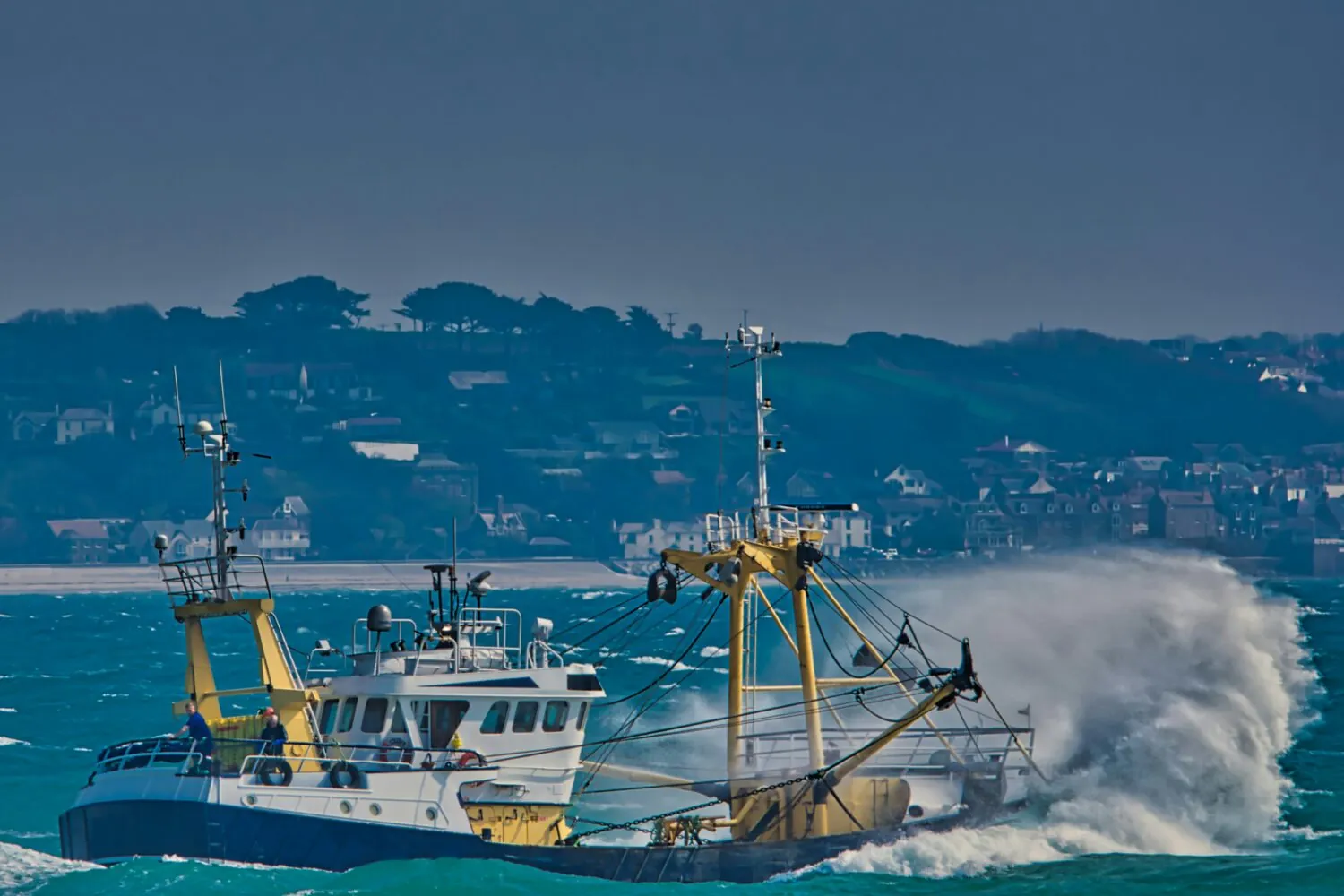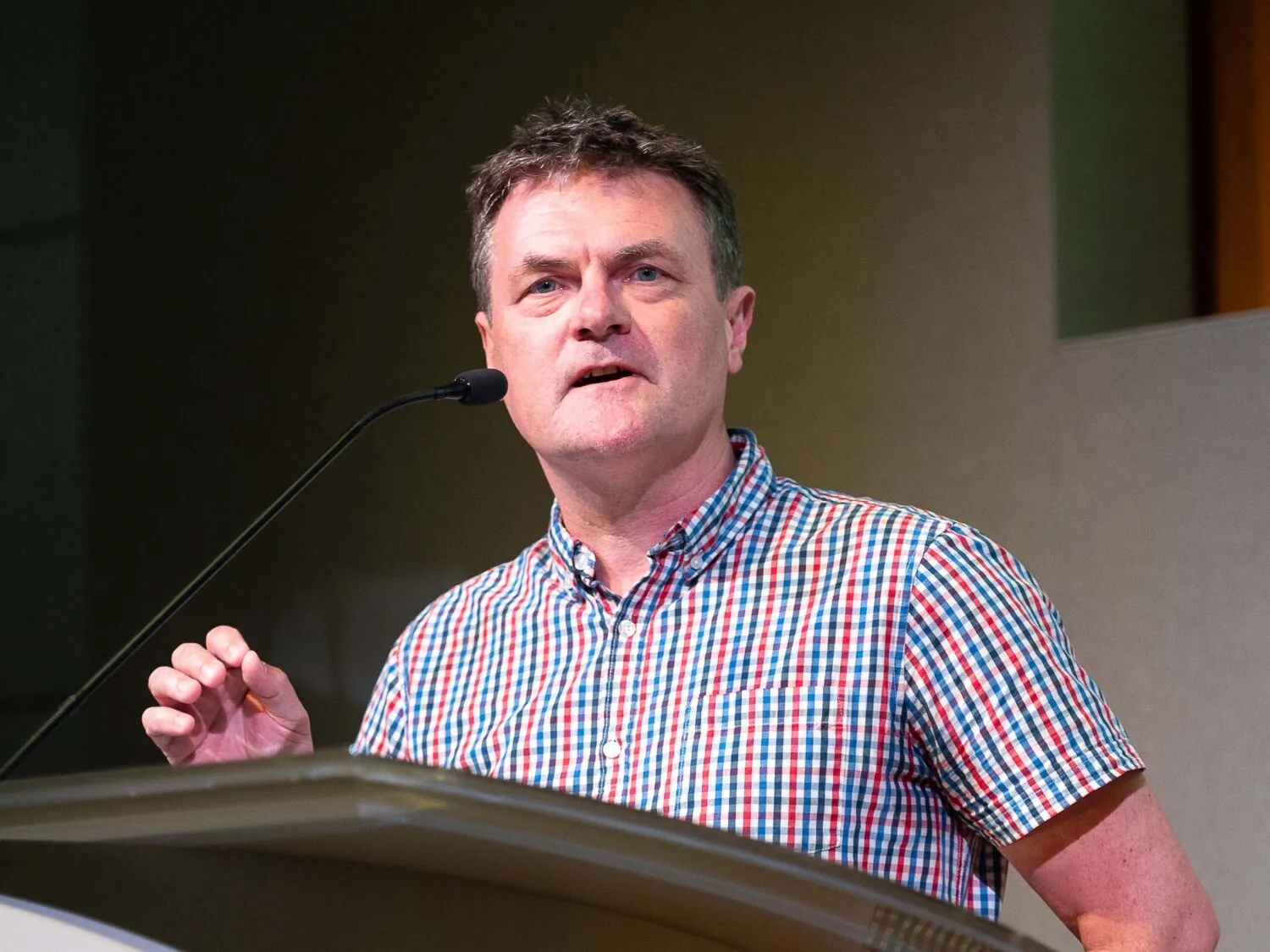DAUK has written an open letter to the Government calling for a ban on bottom trawling in marine protected areas to safeguard environmental and human health.
The letter to the health, environment, and energy secretaries, is in support of campaigns by Marine Conservation Society, Wildlife and Countryside Link, and Oceana UK.
In the letter, Dr Matt Lee, sustainability lead for the Doctors’ Association UK, sets out the links between human health and bottom trawling.
Climate change
They include adding to the threat posed by climate change.
Dr Lee said: “The release of immense quantities of stored carbon from the seabed exacerbates the greenhouse effect, thereby intensifying climate change phenomena that directly impact public health through increased risks of flooding and extreme weather events.
“As the UK Health Security Agency’s Health Effects of Climate Change Report summarised, global warming will result in tens of thousands of excess deaths annually due to heatwaves alone by 2050, with additional mortality risks from storms, floods and changes in geographical distributions of infectious diseases.”
Food security
Dr Lee added: “Economically, the, indiscriminate scouring of the seabed leads to long-term ecological imbalances with far-reaching consequences for food security and the overall economical and public health of coastal communities.
“There are alternative, more sustainable, less damaging fishing methods available that would avoid the catastrophic damage of bottom trawling and allow our marine life in protected areas the opportunity to recover and support us in our fight for a sustainable, liveable future.”
DAUK has set out three requests of the UK Government:
- Support the Government’s Environmental Audit Committee, Marine Conservation Society, Wildlife and Countryside Link and Oceana’s recommendations and enact an immediate ban on bottom trawling in all Marine Protected Areas, in line with the recent EU legislation and international conservation best practices as a minimum.
- Support the Government’s Environmental Audit Committee recommendations to expand the network of highly protected marine areas to 10 per cent of UK waters by 2030 to support the restoration of British marine life.
- Foster inter-departmental collaboration between health, environmental, and energy sectors to ensure that policies safeguarding our oceans are directly aligned with the protection and promotion of human health.
Bottom trawling ban
Dr Lee said: “By terminating the use of bottom trawling in MPAs, we can secure healthier marine ecosystems and, in doing so, protect the well-being of our communities now and for future generations.
“A failure to do so risks irreversibly losing oceanic species and accelerating the climate crisis, resulting in harms to public health for decades to come.”
Read the letter in full below
Picture credit: Lawrence Hookham on Unsplash
Doctors’ Association UK
An Open Letter to:
Rt Hon Wes Streeting, Department of Health and Social Care
Rt Hon Steve Reed, Department for Environment, Food and Rural Affairs
Rt Hon Ed Milliband, Secretary of State for Energy Security and Net Zero
Subject: Urgent call for a ban on bottom trawling in marine protected areas to safeguard environmental and human health
Dear Ministers,
I am writing on behalf of Doctors’ Association UK to express our support for the Marine Conservation Society, Wildlife and Countryside Link and Oceana UK’s campaigns regarding the continued practice of bottom trawling within Marine Protected Areas (MPAs) in UK waters.(1) To allow such practice to continue has negative impacts on environmental and human health and undermines the integrity of MPAs. We urgently call upon your departments to work collaboratively towards the enactment of a comprehensive ban on bottom trawling in these ecologically and economically vital zones.
Bottom trawling involves dragging heavy, weighted nets across the seafloor—a practice that devastates fragile marine ecosystems and contributes more broadly significantly to environmental degradation. As shown in David Attenborough’s latest documentary, ‘Ocean’, this method destroys complex habitats such as cold-water coral reefs and seagrass meadows, is associated with thousands of tonnes of discarded fish, and disturbs the sedimentary carbon reservoirs that play a critical role in regulating atmospheric CO₂ concentrations. (2) It is shocking to know that this practice is still allowed in MPAs, with upwards of 20,000 hours of trawling last year in these supposed areas of “conservation”.(3)
Whilst the links with human health may not initially be apparent, when taking a “One Health” approach to public health, the relationship is clear. The release of immense quantities of stored carbon from the seabed exacerbates the greenhouse effect, thereby intensifying climate change phenomena that directly impact public health through increased risks of flooding and extreme weather events (4). As the UK Health Security Agency’s Health Effects of Climate Change Report summarised, global warming will result in tens of thousands of excess deaths annually due to heatwaves alone by 2050, with additional mortality risks from storms, floods and changes in geographical distributions of infectious diseases. (5)
Economically, the, indiscriminate scouring of the seabed leads to long-term ecological imbalances with far-reaching consequences for food security and the overall economical and public health of coastal communities.(6) There are alternative, more sustainable, less damaging fishing methods available that would avoid the catastrophic damage of bottom trawling and allow our marine life in protected areas the opportunity to recover and support us in our fight for a sustainable, liveable future.
Recent EU legislation mandating the protection of MPAs from harmful fishing practices, including a clear prohibition on bottom trawling, underscores an important recognition of the intrinsic link between environmental stewardship and public health.(7) By restricting destructive practices, the legislation not only preserves marine biodiversity but also reinforces the natural functions of the ocean as a climate regulator.
Furthermore, on 5th June, the Environmental Audit Committee’s clear recommendations emphasise the urgency of taking action to ban trawling in all MPAs and expand MPAs across to cover 10% of British waters, providing nature with an opportunity to recover.
Enacting this ban before the UN Ocean Conference 2025, and subsequently announcing the expansion of MPAs, would showcase the UK as a world leader in conservation, and demonstrate the country’s commitment to the nature restoration.
The cumulative evidence leaves no doubt: the degradation of our marine environments undermines the essential services provided by healthy ecosystems. This, in turn, translates into a direct burden on public health services through increasing climate-related morbidity, threatening food security, and widening inequalities by adversely affecting coastal communities.
For these reasons, we respectfully, but urgently request that the UK government:
- Support the Government’s Environmental Audit Committee, Marine Conservation Society, Wildlife and Countryside Link and Oceana’s recommendations and enact an immediate ban on bottom trawling in all Marine Protected Areas, in line with the recent EU legislation and international conservation best practices as a minimum.
- Support the Government’s Environmental Audit Committee recommendations to expand the network of highly protected marine areas to 10 per cent of UK waters by 2030 to support the restoration of British marine life.
- Foster inter-departmental collaboration between health, environmental, and energy sectors to ensure that policies safeguarding our oceans are directly aligned with the protection and promotion of human health.
The convergence of environmental degradation and public health crises is unequivocal. By terminating the use of bottom trawling in MPAs, we can secure healthier marine ecosystems and, in doing so, protect the well-being of our communities now and for future generations. A failure to do so risks irreversibly losing oceanic species and accelerating the climate crisis, resulting in harms to public health for decades to come.
We urge you to consider the scientific evidence and the compelling public mandate for change. The decisions made in this critical period will not only shape the future of our oceans but will also determine the long-term health and resilience of our society.
Yours sincerely,
Doctors’ Association UK
References
- Oceana UK. Ban bottom trawling [Internet]. Oceana UK; [cited 2025 May 25]. Available from: https://uk.oceana.org/our-campaigns/habitat-protection/
- David Attenborough. Ocean [Internet]. [cited 2025 May 25]. Available from: https://www.oceanfilm.net/home/
- Daily Express. Marine protected areas: bottom trawling [Internet]. [cited 2025 May 25]. Available from: https://www.express.co.uk/news/politics/2057253/marine-protected-areas-bottom-trawling?int_source=mantis_rec_top&int_medium=web&int_campaign=more_like_this_top_comments
- Zhang W, Porz L, Yilmaz R, et al. Long-term carbon storage in shelf sea sediments reduced by intensive bottom trawling. Nat Geosci. 2024;17:1268–1276. doi:10.1038/s41561-024-01581-4.
- UK Government. Climate change: health effects in the UK [Internet]. UK Government; [cited 2025 May 25]. Available from: https://www.gov.uk/government/publications/climate-change-health-effects-in-the-uk
- Steadman D. New perspectives on an old fishing practice: Scale context and impacts of bottom trawling [Internet]. [cited 2025 May 25]. Available from: https://www.researchgate.net/profile/Daniel-Steadman/publication/359281130_New_perspectives_on_an_old_fishing_practice_Scale_context_and_impacts_of-bottom-trawling/links/62332c384ce552783cc3b862/New-perspectives-on-an-old-fishing-practice-Scale-context-and-impacts-of-bottom-trawling.pdf
- Oceanographic. EU Court: Marine protected areas must be shielded from trawling [Internet]. Oceanographic; [cited 2025 May 25]. Available from: https://oceanographicmagazine.com/news/eu-court-marine-protected-areas-must-be-shielded-from-trawling/





